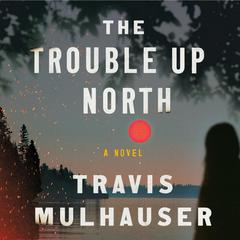 Play Audiobook Sample
Play Audiobook Sample
Musicophilia (Abridged): Tales of Music and the Brain Audiobook
 Play Audiobook Sample
Play Audiobook Sample
Quick Stats About this Audiobook
Total Audiobook Chapters:
Longest Chapter Length:
Shortest Chapter Length:
Average Chapter Length:
Audiobooks by this Author:
Publisher Description
Music can move us to the heights or depths of emotion. It can persuade us to buy something, or remind us of our first date. It can lift us out of depression when nothing else can. It can get us dancing to its beat. But the power of music goes much, much further. Indeed, music occupies more areas of our brain than language does—humans are a musical species. Oliver Sacks’s compassionate, compelling tales of people struggling to adapt to different neurological conditions have fundamentally changed the way we think of our own brains, and of the human experience. In Musicophilia, he examines the powers of music through the individual experiences of patients, musicians, and everyday people—from a man who is struck by lightning and suddenly inspired to become a pianist at the age of forty-two, to an entire group of children with Williams syndrome, who are hypermusical from birth; from people with “amusia,” to whom a symphony sounds like the clattering of pots and pans, to a man whose memory spans only seven seconds—for everything but music. Our exquisite sensitivity to music can sometimes go wrong: Sacks explores how catchy tunes can subject us to hours of mental replay, and how a surprising number of people acquire nonstop musical hallucinations that assault them night and day. Yet far more frequently, music goes right: Sacks describes how music can animate people with Parkinson’s disease who cannot otherwise move, give words to stroke patients who cannot otherwise speak, and calm and organize people whose memories are ravaged by Alzheimer’s or amnesia. Music is irresistible, haunting, and unforgettable, and in Musicophilia, Oliver Sacks tells us why.
Download and start listening now!
"Loved Oliver Sacks' new compilation of case studies, especially the postscript to "Accidental Davening". The writing is crisp and intelligent and suffused with Sacks' delight in discovering new permutations of brain disfunction. am I the only person who wishes to experience synesthesia?"
— Michale (5 out of 5 stars)
Quotes
-
Dr. Sacks writes not just as a doctor and a scientist but also as a humanist with a philosophical and literary bent. . . [his] book not only contributes to our understanding of the elusive magic of music but also illuminates the strange workings, and misfirings, of the human mind.
— Michiko Kakutani, The New York Times -
Oliver Sacks turns his formidable attention to music and the brain . . . He doesn’t stint on the science . . . but the underlying authority of Musicophilia lies in the warmth and easy command of the author’s voice.
— Mark Coleman, Los Angeles Times -
His work is luminous, original, and indispensable . . . Musicophilia is a Chopin mazurka recital of a book, fast, inventive and weirdly beautiful . . . Yet what is most awe-inspiring is his observational empathy.
— American Scholar -
Curious, cultured, caring, in his person Sacks justifies the medical profession and, one is tempted to say, the human race . . . Sacks is, in short, the ideal exponent of the view that responsiveness to music is intrinsic to our makeup. He is also the ideal guide to the territory he covers. Musicophilia allows readers to join Sacks where he is most alive, amid melodies and with his patients.
— Peter D. Kramer, The Washington Post -
Readers will be grateful that Sacks . . . is happy to revel in phenomena that he cannot yet explain.
— The New York Times Book Review -
“The persuasive essays about composers, patients, savants, and ordinary people . . . offer captivating variations on the central premise that human beings are ‘exquisitely tuned’ to the illuminating yet ultimately mysterious powers of music.
— Elle -
With the exception of Lewis Thomas, no physician has ever written better about his trade.
— Salon -
A gifted writer and a neurologist, Sacks spins one fascinating tale after another to show what happens when music and the brain mix it up.
— Newsweek
Musicophilia Listener Reviews
-
" A collection of essays, illuminating the connection of music with the mind, and how those connections are revealed in the various patient pathologies - in short, a fascinating read from Oliver Sacks. "
— John, 2/20/2014 -
" Anyone who is interested in music and science this book is it.... I really liked it! "
— Afshin, 2/17/2014 -
" I love this book so far!! Margin notes are sprawling! "
— Colleen, 2/16/2014 -
" Fascinating tidbits of information that remind me of myself for some things! "
— Yvonne, 2/9/2014 -
" There's just so much interesting stuff in this book!!! I love Oliver Sacks!!!!! I especially love how he writes so compassionately about the people he sees. "
— Michelle, 2/7/2014 -
" Pretty interesting. It is fascinating to see how the brain works and how it can be damaged. There were too many stories, which made the stories run into each other. It would have been better to stick with one or two stories per chapter. Still a good book. "
— Natasha, 2/5/2014 -
" This was a very interesting book, but I think he could have had a better editor. While each case study was fascinating on its own, and the conclusions drawn from the cases were very thoguht-provoking, it was exhausting get through this book. "
— Daniel, 1/24/2014 -
" No real insight just a lot of case studies and a well read researcher following each one with "isn't that interesting" "
— Eric, 1/18/2014 -
" I just love Oliver Sacks! "
— Neeka, 1/17/2014 -
" I was looking forward to some keen insights, but instead found this to be pretty underwhelming. Some interesting case studies, but it rarely transcends the anecdotal. It stays on the shelf for its bibliography. "
— Dan, 12/27/2013 -
" It is as if identity has such a robust, widespread neural basis, as if personal style is so deeply ingrained in the nervous system, that it is never wholly lost, at least while there is still any mental life present at all. "
— Magda, 12/25/2013
About Oliver Sacks
Oliver Sacks (1933–2015) was the author of more than a dozen books, including The Mind’s Eye, Musicophilia, The Man Who Mistook His Wife for a Hat, and Awakenings, which inspired both the Oscar-nominated film and a play by Harold Pinter. The New York Times has referred to him as “the poet laureate of medicine,” and he was a frequent contributor to the New Yorker and the New York Review of Books. He lived in New York City, where he was professor of neurology at the NYU School of Medicine for many years.
About Simon Prebble
Simon Prebble, a British-born performer, is a stage and television actor and veteran narrator of some three hundred audiobooks. As one of AudioFile’s Golden Voices, he has received thirty-seven Earphones Awards and won the prestigious Audie in 2010. He lives in New York.






























